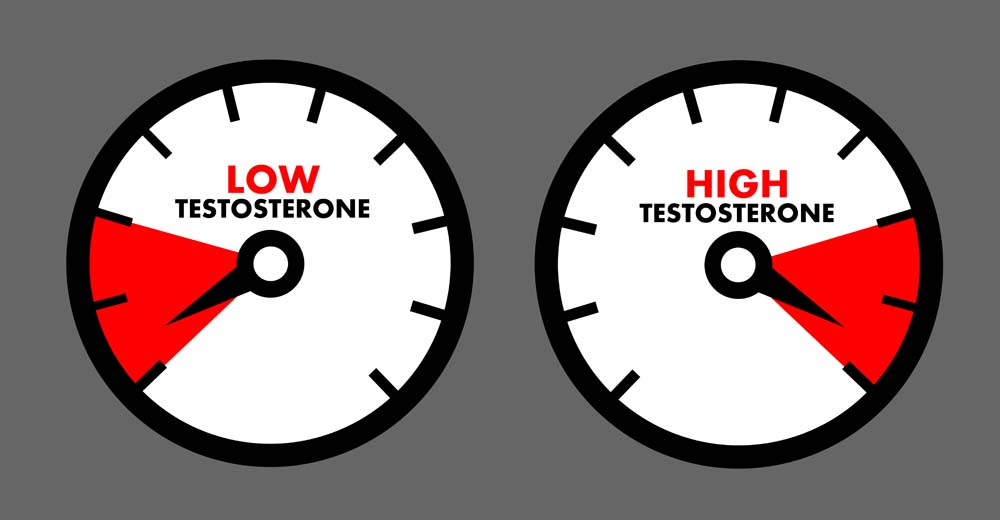One of the most common concerns for men considering a vasectomy is whether the procedure affects testosterone levels. While vasectomy is a safe and effective form of permanent contraception, myths and misconceptions persist about its impact on male hormones. In this article, we will explore the science behind vasectomy and testosterone levels, address common concerns, and provide evidence-based information to help you make an informed decision.
Vasectomy is a widely performed procedure that involves cutting or sealing the tubes that carry sperm from the testicles. It is a highly effective method of birth control, with success rates exceeding 99%. However, many men worry about potential side effects, including hormonal changes. Understanding the relationship between vasectomy and testosterone is crucial for making an informed choice.
This article aims to provide a detailed overview of vasectomy and its effects on testosterone, backed by scientific research and expert opinions. Whether you're considering the procedure or simply seeking information, you'll find valuable insights here.
Read also:Exploring The Life Of Channing Tatums Brother A Deep Dive
Table of Contents
- What is a Vasectomy?
- Does a Vasectomy Affect Testosterone?
- How Does a Vasectomy Work?
- Vasectomy and Hormonal Changes
- Long-Term Effects of Vasectomy
- Common Myths About Vasectomy
- Health Benefits of Vasectomy
- Risks and Side Effects
- Consulting a Doctor
- Conclusion
What is a Vasectomy?
A vasectomy is a surgical procedure that provides permanent contraception by preventing sperm from entering the semen. During the procedure, the vas deferens, the tubes that transport sperm from the testicles to the urethra, are cut or sealed. This effectively blocks sperm from being ejaculated, making pregnancy impossible.
It is important to note that vasectomy does not affect the production of testosterone or other male hormones. The testicles continue to produce sperm and hormones as they normally would, but the sperm is simply reabsorbed by the body instead of being ejaculated.
Key Facts About Vasectomy
- Vasectomy is a quick, outpatient procedure that typically takes about 15-30 minutes.
- It is minimally invasive and has a high success rate, with less than 1% of procedures resulting in failure.
- Recovery is generally quick, with most men resuming normal activities within a few days.
Does a Vasectomy Affect Testosterone?
One of the most frequently asked questions about vasectomy is whether it impacts testosterone levels. The short answer is no—vasectomy does not affect testosterone production. Testosterone is produced in the testicles, and the procedure does not interfere with this process. The vas deferens is only responsible for transporting sperm, not hormones.
Scientific studies have consistently shown that testosterone levels remain stable after a vasectomy. A study published in the Journal of Urology found no significant difference in testosterone levels between men who underwent vasectomy and those who did not.
Understanding Hormonal Balance
Testosterone is a key hormone in male reproductive health, influencing factors such as libido, muscle mass, and mood. Since the testicles continue to produce testosterone after a vasectomy, there should be no noticeable change in hormonal balance. However, individual experiences may vary, and psychological factors can sometimes influence perceptions of hormonal changes.
How Does a Vasectomy Work?
To better understand why vasectomy does not affect testosterone, it is important to know how the procedure works. During a vasectomy, the vas deferens is either cut, clamped, or sealed, preventing sperm from entering the ejaculate. This does not disrupt the testicles' ability to produce testosterone or other hormones.
Read also:Joe Gorga Net Worth 2024 A Comprehensive Insight Into His Wealth
After the procedure, sperm is still produced but is reabsorbed by the body. The body naturally clears excess sperm through the lymphatic system, ensuring no buildup or harmful effects.
Types of Vasectomy
- Conventional Vasectomy: Involves making small incisions in the scrotum to access the vas deferens.
- No-Scalpel Vasectomy: A minimally invasive technique that uses a special tool to access the vas deferens without cutting the skin.
Vasectomy and Hormonal Changes
Although vasectomy does not directly affect testosterone levels, some men may experience psychological effects that could influence their perception of hormonal changes. For example, anxiety or stress about the procedure might lead to temporary changes in mood or energy levels. However, these effects are not related to hormonal imbalances.
Research has shown that vasectomy does not cause long-term hormonal changes. A study conducted by the World Health Organization found no evidence of hormonal disruptions in men who underwent the procedure.
Factors That May Influence Perception
- Psychological stress
- Age-related hormonal decline
- Underlying medical conditions
Long-Term Effects of Vasectomy
Studies have shown that vasectomy is safe and does not lead to long-term health issues, including hormonal imbalances. Men who have undergone the procedure report no significant changes in testosterone levels, sexual function, or overall health.
In fact, some men experience improved quality of life after vasectomy, as they no longer need to worry about accidental pregnancies. This can lead to reduced stress and improved relationships with partners.
Potential Benefits
- Permanent contraception with high effectiveness
- Reduced stress about unintended pregnancies
- Minimal impact on sexual function
Common Myths About Vasectomy
Despite its safety and effectiveness, vasectomy is often surrounded by myths and misconceptions. Here are some of the most common myths about the procedure:
- Myth 1: Vasectomy reduces testosterone levels. Fact: Vasectomy does not affect testosterone production.
- Myth 2: Vasectomy causes erectile dysfunction. Fact: There is no evidence linking vasectomy to erectile dysfunction.
- Myth 3: Vasectomy increases the risk of prostate cancer. Fact: Studies have not found a conclusive link between vasectomy and prostate cancer.
Addressing Misconceptions
It is essential to rely on scientific evidence when evaluating the effects of vasectomy. Consulting a qualified healthcare professional can help dispel myths and provide accurate information.
Health Benefits of Vasectomy
In addition to being an effective form of contraception, vasectomy offers several health benefits. It eliminates the need for other forms of birth control, such as condoms or hormonal contraceptives, which can have side effects. Vasectomy also reduces the risk of sexually transmitted infections (STIs) in some cases, as it eliminates the need for barrier methods.
Furthermore, vasectomy is a cost-effective solution for couples who do not plan to have more children. The one-time procedure eliminates the need for ongoing contraception expenses.
Summary of Benefits
- Highly effective contraception
- Cost-effective and permanent solution
- Minimal impact on sexual health
Risks and Side Effects
While vasectomy is generally safe, like any medical procedure, it carries some risks and potential side effects. These include:
- Temporary pain or swelling
- Bruising or minor bleeding
- Infection (rare)
Most side effects are mild and resolve within a few days. Serious complications are extremely rare, and the procedure is considered one of the safest forms of contraception available.
Managing Side Effects
Your doctor will provide detailed instructions on how to manage any discomfort or side effects after the procedure. This may include taking over-the-counter pain relievers, applying ice packs, and avoiding strenuous activities for a few days.
Consulting a Doctor
If you're considering a vasectomy, it is crucial to consult a qualified healthcare professional. Your doctor can answer your questions, address concerns, and help you make an informed decision. They will also provide guidance on the procedure, recovery, and any potential risks.
During the consultation, be sure to discuss your medical history, any medications you're taking, and your reasons for considering vasectomy. This will help your doctor tailor the procedure to your specific needs.
Questions to Ask Your Doctor
- What are the risks and benefits of vasectomy?
- How long is the recovery period?
- Will my testosterone levels be affected?
Conclusion
In conclusion, vasectomy is a safe and effective form of permanent contraception that does not affect testosterone levels. Scientific studies and expert opinions consistently confirm that the procedure has no impact on male hormones or sexual function. By dispelling myths and providing accurate information, we hope to help men make informed decisions about their reproductive health.
We encourage you to share this article with others who may benefit from it and leave your thoughts or questions in the comments section below. For more information on vasectomy and related topics, explore our other articles on the site.



